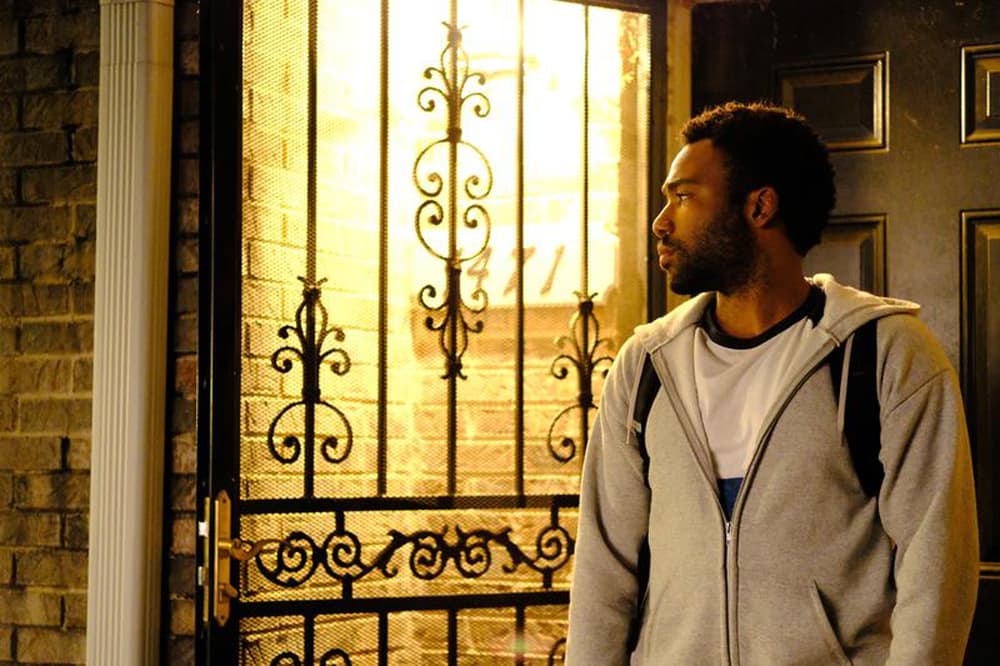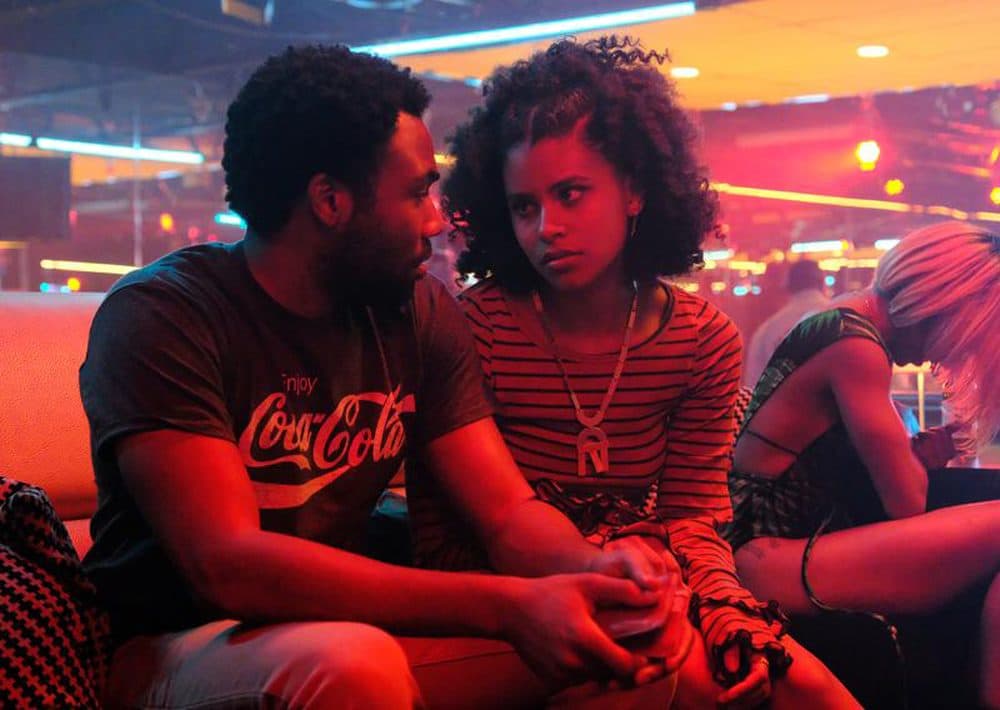Advertisement
Review
Power And Privilege Continue To Anchor Donald Glover's One-Of-A-Kind 'Atlanta'

“Robbin’ season. Christmas approaches, and everybody gotta eat.”
Darius (Lakeith Stanfield), the accidental sage of FX’s “Atlanta,” drops these laconic pearls of wisdom partway through the series’ second season premiere. Whether he intends them to or not, his words fundamentally alter the way we watch the show. “What are they eating?” says Earn (Donald Glover) in response. Turns out the answer is “everything.”
“Atlanta,” Glover's creative baby, has always been about people taking from other people: People take your culture. They take your money. They even take your dignity and let’s not forget that culture, money and dignity occasionally go hand in hand. But “Robbin’ Season,” as the season's dubbed, is distinguished from the show’s first season that aired in 2016 with overwhelming sensations of exposure and vulnerability. Its opening episode begins with a literal bang when two teens rob a fast food joint and leave a young lady screaming in the parking lot, coated in shattered glass and her own blood. (The scene’s proximity to renewed national conversations about gun control and violence makes it too close to home for comfort.)
The burglary and resultant firefight immediately announce the series’ purpose, but the sequence of thefts that follow are decidedly smaller in scope. Earn wakes up in the storage facility he’s lived out of since the Season One finale to an eviction notice delivered by a facility employee, who casually pilfers Earn’s belongings; sirens in the distance inform us of other crimes in progress, and possibly instances of false arrests; Katt Williams shows up playing Earn's uncle, Willy, as a version of himself, punishing his girlfriend for allegedly taking his cash by locking her in the bedroom. That’s just a taster from the premiere, “Alligator Man.” As the season progresses, Earn’s cousin Alfred, aka Paper Boi (Brian Tyree Henry), increasingly resents his success as a rapper as fans and MC aspirants alike accost him in public, asking for autographs, reciting his lyrics, demanding a leg-up in the industry.
Everyone in “Atlanta” wants for something, or they expect something. In particular instances they have something already, and it’s their unconscious mission to flaunt that something when opportunity presents itself. That’s the world Earn, Darius and Paper Boi inhabit. The show has previously established Atlanta as a place where image is a trump card and the appearance of status is nearly equivalent to status itself. Earn’s hustle as Paper Boi’s manager is starting to pay off, and while he’s perfectly happy to pay for movie tickets or admission to nightclubs with $100 notes, he’s still content with his unembellished style. He looks good, not flashy, and the absence of flash makes him prey in a city defined by it. Everyone stunts on Earn. Even homeless folks stunt on Earn.

At least he’s not alone. Vanessa (Zazie Beetz), Earn’s better half, has to put up with her friend making a power play over a Beyoncé concert. The more “Atlanta” leans on that element, the more fully it paints its leads’ isolation and consequently puts them at risk. Race presents an obstacle whether in the company of black or white people. Earn is turned away when he tries to buy those movie tickets, the smiling white cashier claiming she can’t break a hundred. Moments later a white man purchases tickets with the same denomination, no trouble. When Earn protests, the man nonchalantly reveals that he’s packing a pistol. Later, when Earn and Vanessa go to a high class bar, the black owner accuses Earn of paying admission with counterfeit money. The cops get involved, but by small mercy they’re on his side.
If Atlanta’s social politics aren’t humiliating you in plain view of strangers, they’re threatening your life. It’s a horrifying sequence of events, a naked violation of both personal safety and faith in American myths of equality. The mounting ignominies make us worry for the cast’s mental wellbeing. “Atlanta” doesn’t broach that subject directly, but set amid an atmosphere of distrust and couched in daily embarrassments over drinks and in hip startup offices, we can’t help but sense implicit anxiety. It’s the unshakeable feeling that nothing is ever alright, even when the people Glover and his crew (including frequent director Hiro Murai and his brother and coauthor Stephen Glover) ask us to invest in should by all appearances be all right.
At one point Earn tells Paper Boi how badly he wants to be in his position, how badly he wants the privilege to stunt at will on whoever he so chooses. Paper Boi can only tell him the truth, that privilege isn’t all it’s cracked up to be. Their exchange follows an uncomfortable encounter with the man waiting their table, who talks down Earn and begs Paper Boi to work with him. It’s exactly as cringeworthy as it sounds. Brian Tyree Henry, a revelation in a TV show stuffed with revelations, wears exhaustion as much in his eyes as on his sleeves; Glover maintains his ambivalent front, given away by world-weariness, Atlanta-weariness, plainly written over his body. Stanfield is Stanfield: In his hands, Darius is unreadable, but when he expresses, he does so with off-kilter and oddly moving poetry. It’s Beetz who has the best head on her shoulders, but even Vanessa is weighed down by real slights and inconveniences piled on her by human interaction.
“Robbin’ Season” treats that underlying melancholy as a natural phenomenon not unlike gravity. It holds the characters populating “Atlanta” in place at best, and keeps them down at worst. The series’ sly, wry, routinely idiosyncratic humor remains intact, but Glover appears to want us to work harder to find it. At all times the show’s comedy is anchored by an abiding gloom blended with its trademark eccentricities and the one of a kind rhythm of its backdrop. There wasn’t a series like “Atlanta” on TV back in 2016. In 2018, there still isn’t.
